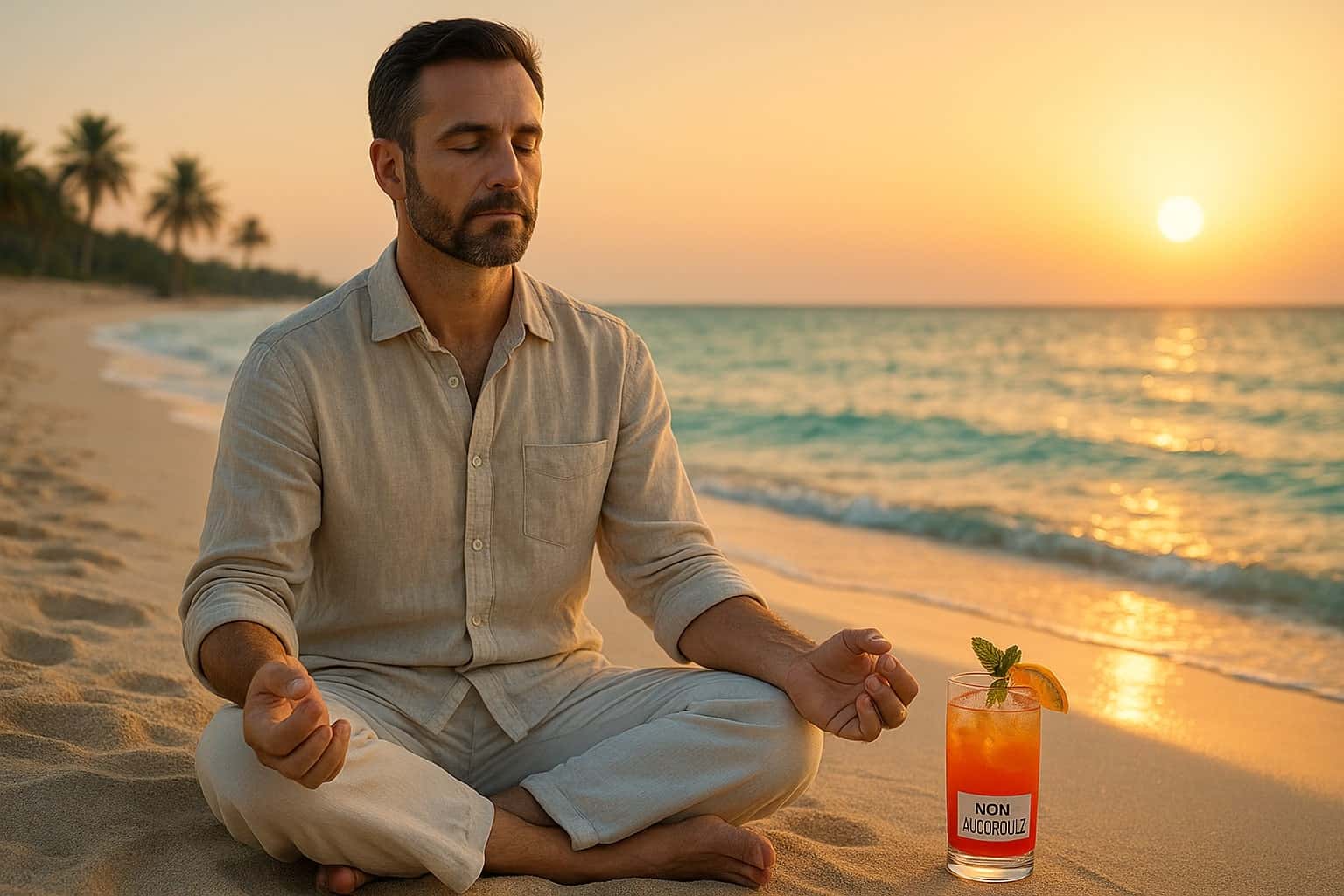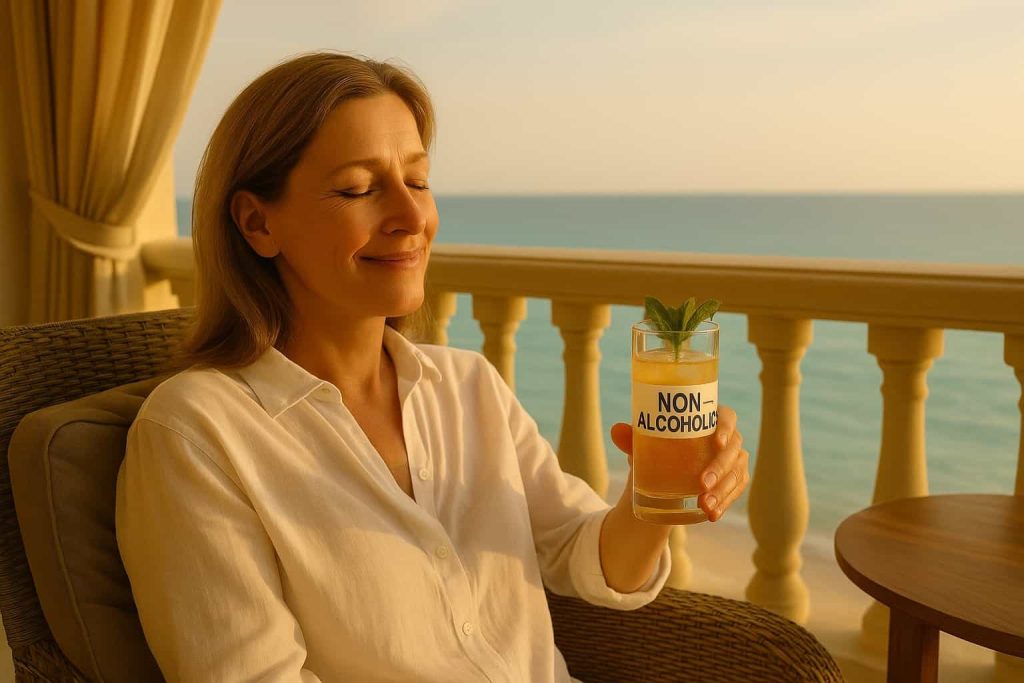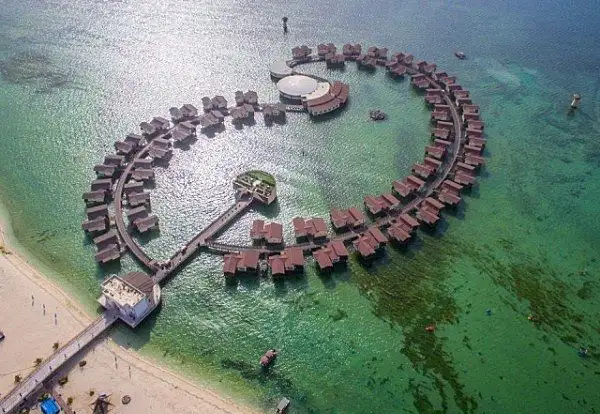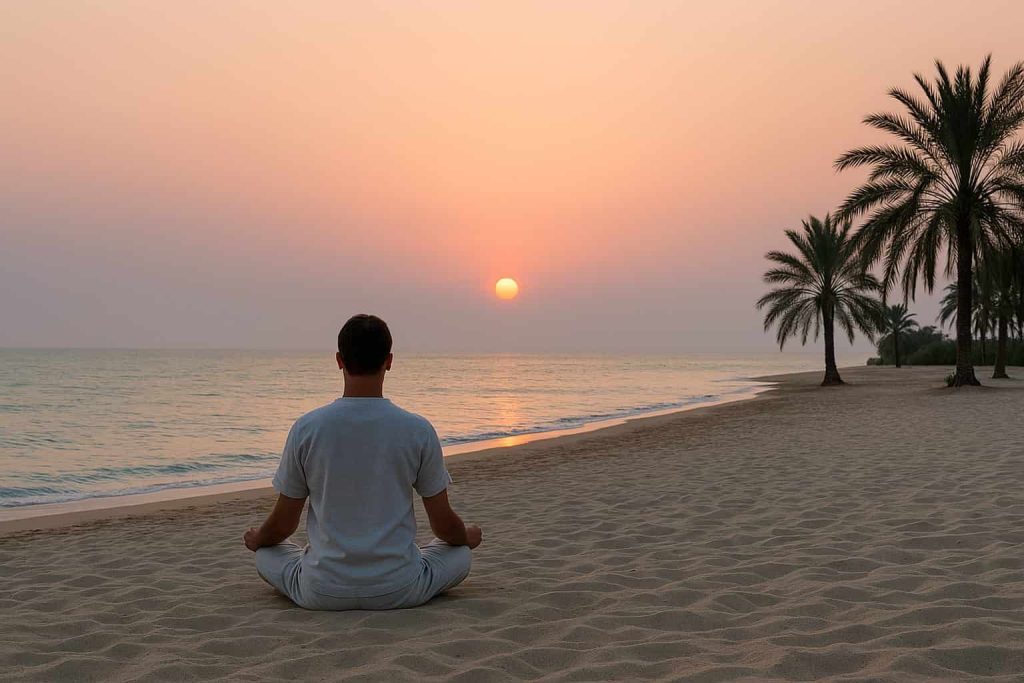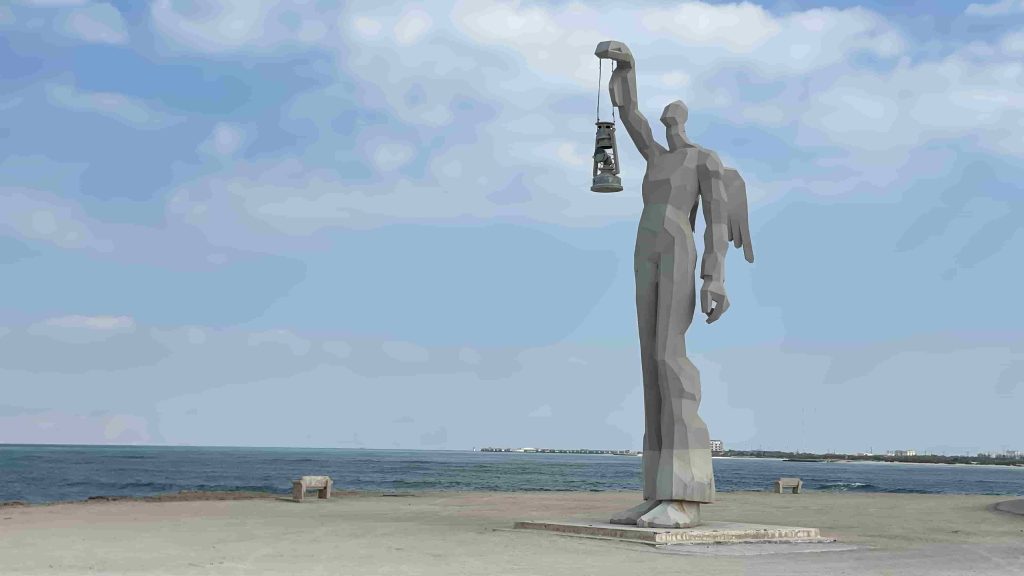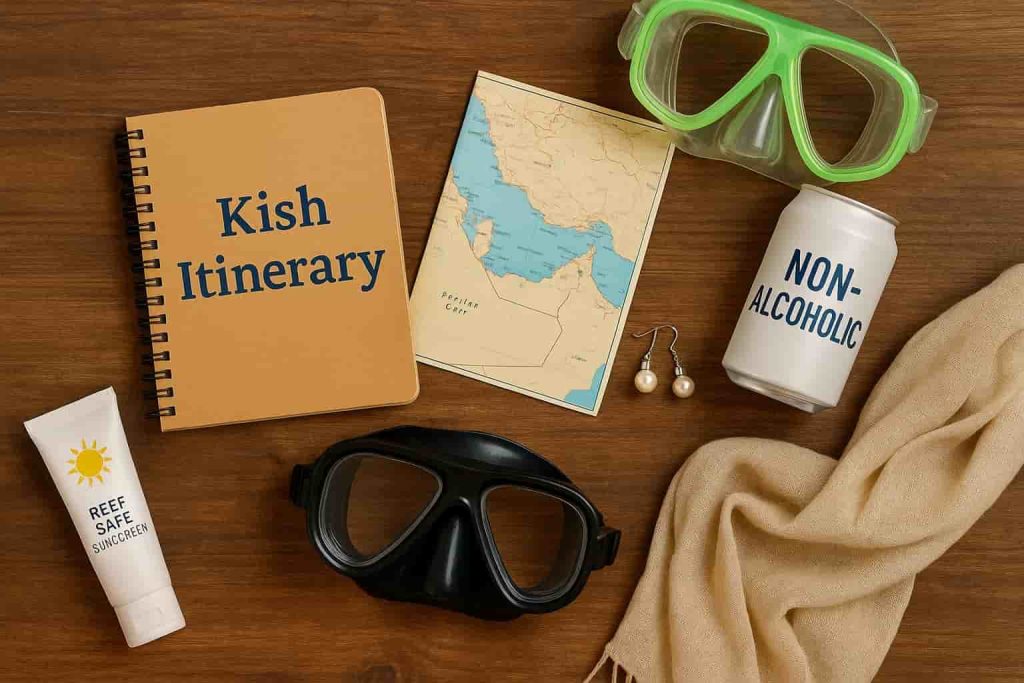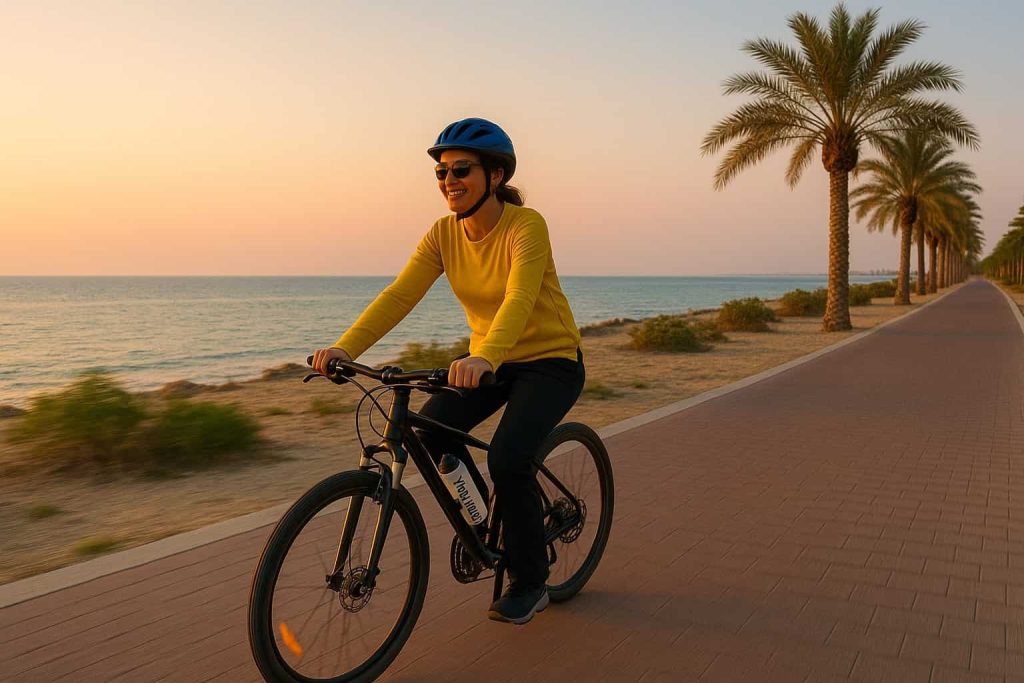That throbbing post-party headache is only the opening act. Behind the curtain, alcohol side effects are quietly drying out your skin, hijacking your REM sleep, rewiring dopamine pathways, and accelerating belly-fat storage—even when you swear you’re “just a social drinker.” Yet most articles stop at textbook warnings or bland “drink water” advice. This one digs deeper.
Over the next few minutes you’ll discover:
The latest cellular research showing how even moderate drinking slows collagen repair and turbo-charges oxidative stress.
Brain-scan insights that explain why a single night of bingeing can blunt memory formation for days.
Evidence-based recovery hacks—from specific amino acids to circadian-friendly routines—that shrink hangover time and jump-start mental clarity.
A surprising, entirely alcohol-free escape route that countless ex-drinkers credit for their long-term reset (and no, it’s not a juice cleanse).
Curious? Keep reading. The next section may change the way you think about “just one more.”
1. The Hidden Costs of Alcohol: A hidden Alcohol side effects

On the surface, a sunset cocktail may look like the perfect emblem of leisure, but its true price is rarely itemized on the bill. Alcohol’s effects linger long after the last glass is raised, quietly taxing body, mind, wallet, and—most importantly—the quality of our experiences when we travel. Before exploring the serenity of a destination like Kish Island iran, it helps to understand exactly what we leave behind when we choose to go alcohol-free.
Physical health takes the first hit. Even moderate drinking disrupts liver function, elevates blood pressure, and interferes with restorative sleep. Over time, those late-night toasts can translate into weakened immunity, premature aging of the skin, and an increased risk of chronic illnesses—hardly souvenirs anyone wishes to bring home.
The mental toll is just as stealthy. While a drink can deliver a fleeting sense of calm, research shows alcohol ultimately heightens anxiety and undermines mood stability. Jet lag, new surroundings, and an irregular schedule already challenge the mind on holiday; add alcohol, and the “relaxing break” can morph into a cycle of restlessness and irritability.
Social and safety costs follow swiftly. Impaired judgment is a leading factor in travel mishaps—from missing flights to dangerous water-sport decisions. Interpersonal friction also tends to rise in step with blood-alcohol levels, potentially turning shared adventures into forgettable arguments.
The financial drain is often underestimated. Beyond drink prices themselves lie service charges, ride-share surges to get “home safely,” and the opportunity cost of lethargic, post-party mornings when tours get skipped and photo-ops fade. That wasted time—a commodity more precious than any currency—can never be refunded.
Finally, alcohol frequently mutes cultural immersion. The aromas of regional cuisine, the cadence of local music, and the quiet wonder of an island sunrise all register more vividly with clear senses. By removing alcohol from the equation, travelers gift themselves sharper memories and deeper connections—assets Kish Island, proudly alcohol-free by law, is uniquely positioned to magnify.
2. Physical Repercussions: From Hangovers to Long-Term Health Risks
The morning after a night of drinking rarely resembles the glossy images splashed across travel brochures. Alcohol side effects — from its diuretic pull that drains water and electrolytes from every cell, to its disruptive impact on sleep cycles and immune function — leave travelers dehydrated, light-sensitive, and nauseated before the sun has even climbed over the horizon. On a typical holiday, that means stumbling past opportunities—a dawn bike ride along the Persian Gulf coast, perhaps, or the first boat to a coral reef—because the body is busy patching itself up instead of exploring. On Kish Island, where alcoholic beverages are simply not available, visitors wake up with clear eyes, steady hydration levels, and a full energy reserve ready to channel into snorkeling, paddle-boarding, or a sunrise yoga session on powder-soft sand.
Alcohol also wages a stealthier assault on the gastrointestinal system. Each sip irritates the stomach lining and triggers excess acid production, often culminating in heartburn, indigestion, or the all-too-familiar queasiness that can derail a carefully planned food tour. In a destination celebrated for its saffron-infused seafood stews and fragrant date desserts, dulled taste buds and a churned-up stomach are nothing short of tragic. Choosing an alcohol-free itinerary in Kish protects the delicate balance of gut flora, allowing travelers to savor every subtle spice note and Persian herb blend without the looming threat of acid reflux stealing the spotlight.
Sleep, the body’s master repair cycle, fares no better under the influence. While alcohol may coax a person into drowsiness, it systematically blocks REM stages and suppresses deep, slow-wave sleep. The result is a night that looks long on the clock yet feels painfully short in recovery value—a deficit immediately apparent when the call to adventure comes with the dawn. Alcohol side effects on sleep quality include disrupted circadian rhythms, fragmented rest, and reduced cellular repair, leaving travelers sluggish and unfocused. By contrast, visitors to Kish report a noticeably deeper, more restorative slumber. Free from the REM-robbery of alcohol, they can greet each morning meditation or mangrove-forest excursion fully recharged, lending the island’s stillness an almost therapeutic clarity.
Beyond the acute woes of hangovers lie the incremental, cumulative damages that follow a traveler home. Repeated drinking accelerates fatty deposits in the liver, elevates blood pressure, and raises triglyceride levels, setting the stage for conditions—from cirrhosis to stroke—that do not respect passport stamps. Even brief binge episodes can inflame the pancreas and spike inflammatory markers that linger for weeks. An escape to Kish offers more than a well-posed Instagram moment; it functions as a practical health reset, giving vital organs uninterrupted time to repair at a cellular level while visitors focus on dolphin parks, ancient Harireh ruins, and languid afternoons beneath date-palm canopies.
Finally, alcohol amplifies the body’s oxidative stress, accelerating skin aging and weakening immune defenses—two factors that make sun-drenched travel especially unforgiving. Ultraviolet rays already generate free radicals; when combined with alcohol-induced oxidative damage, the double hit fast-tracks wrinkles, sunspots, and sluggish wound healing. In an island climate where sea-spray selfies and dune adventures beckon, maintaining a resilient complexion and strong immunity is invaluable. By eliminating alcohol from the equation, Kish empowers visitors to soak up its golden light without silently trading future wellness for fleeting revelry.
In short, every glass poured extracts a toll measured not only in immediate headaches but in the hidden depreciation of the very muscles, organs, and metabolic gears that fuel exploration. Alcohol side effects accumulate silently—weakening digestion, dulling mental clarity, and impairing physical resilience over time. Opting for Kish Island’s naturally alcohol-free environment replaces those hidden costs with dividends—clearer mornings, stronger digestion, deeper sleep, and a body primed for discovery. It is travel where the souvenir is not a bottle label but a renewed respect for one’s own physiology.
3. Mental & Emotional Toll: Stress, Anxiety, and Sleep Disruption
Alcohol’s False Calm
Few substances sell the illusion of tranquility more convincingly than alcohol. Within minutes, a single drink tweaks gamma-aminobutyric acid (GABA) receptors, loosening muscles and dulling the immediate chatter of the mind. The effect feels like relief—especially on holiday, when flight delays, unfamiliar languages, or a packed sightseeing schedule can heighten tension. Yet beneath that fleeting exhale, the central nervous system is already recalibrating to counteract the sedative. Heart rate edges upward, stress hormones such as cortisol rebound, and the brain’s reward circuits brace for the next dose. What masquerades as relaxation is, in biochemical terms, a down payment on future agitation. Replace that evening wine with a sunset stroll along Kish Island’s tranquil shoreline, and the nervous system enjoys genuine decompression: rhythmic waves slow the breath, sea salt purifies the air, and the glow of saffron-gold dusk offers sensory comfort with zero rebound cost.
The Anxiety Rebound Cycle
Travelers often reach for a nightcap believing it will “take the edge off” social jitters. Initially, alcohol does blunt the amygdala’s threat signals, allowing even the shyest visitor to chat freely at a beachfront café. But as blood-alcohol concentration falls, the brain overshoots in the other direction, flooding neural pathways with excitatory glutamate. This biochemical whiplash manifests as racing thoughts at 3 a.m., a spike of inexplicable dread while waiting for a taxi, or an outsized reaction to minor inconveniences—think misplaced passport or a disagreement over dinner plans. When the next drink is used to quell that discomfort, a feedback loop forms, silently chaining the traveler’s mood to their glass. On Kish Island, where alcohol is absent by law, guests are nudged toward healthier anxiety outlets: a meditative visit to the centuries-old Greek Ship wreck at dusk, or the calming hum of prayer beads sold in the old bazaar. The island becomes a classroom in self-soothing that doesn’t rely on ethanol’s fleeting balm.
REM Robbery and Emotional Reset
Quality sleep is the brain’s nightly therapy session, a time when emotional memories are processed and stress hormones are recalibrated. Alcohol, however, acts like an intruder barging into that session. By suppressing rapid eye movement (REM) cycles and fragmenting deep slow-wave sleep, even modest drinking leaves neural housekeeping unfinished. The consequences show up the next day as irritability, foggy recall of yesterday’s walking tour, and a diminished capacity to marvel at new sights. On Kish, where the lullaby is the rustle of date-palm fronds rather than last call at a nightclub, visitors consistently report deeper, dream-rich rest. Waking at dawn refreshed, they can absorb the delicate mauves of sunrise over the Persian Gulf with a clarity that no caffeinated rescue can emulate.
Mood Swings and Relationship Ripples
Vacation memories are stitched together by shared laughs, quiet awe, and occasional logistical stress—missed ferries, unexpected heat. Alcohol side effects magnify those stress points into friction. Blood-sugar swings trigger sudden hunger or lethargy; neurotransmitter imbalances sharpen tone of voice or exaggerate perceived slights. A disagreement that might end in a shrug can flare into a rift that lingers long after the plane ride home. In an alcohol-free environment like Kish, couples and travel companions discover that emotional crests and troughs flatten into gentle ripples. There is space to talk rather than snap, to find humor in mishaps rather than blame. Many leave the island describing not just a destination explored, but a relationship quietly strengthened by the absence of chemical volatility.
Ultimately, the greatest gift of bypassing alcohol is sovereignty over one’s own mind. Clear-headed travelers can tune fully into Kyrie-like calls of migratory birds in the mangroves, notice the subtle cooling of ocean breezes after sunset, and savor silent moments of self-reflection rarely available in the clamor of modern life. Kish Island—devoid of disco lights and casino clang—turns this clarity into its signature luxury. Here, serenity is not purchased by the bottle; it is woven into every coral reef, every rose-gold dune, every starlit sky. In choosing the island’s sober embrace, visitors embark on an inward journey as vivid as any postcard panorama—one where stress evaporates, anxiety loosens its grip, and restorative sleep knits each day’s impressions into lasting peace.
4. Social Consequences: Relationships, Safety, and Decision-Making
Fraying the Fabric of Connection
Alcohol is often marketed as a social lubricant, yet its chemistry quietly undermines the very bonds it claims to strengthen. Ethanol dampens activity in the prefrontal cortex—the region responsible for empathy, tone modulation, and situational awareness—so compliments morph into sarcasm, stories drag into monologues, and a partner’s subtle cues go undetected. What begins as light-hearted banter can tip into conflict once slurred words and skewed perceptions enter the mix. In contrast, evenings on Kish Island are framed by clear dialogue under star-laden skies, where travelers engage with one another and with locals in honest, unfiltered conversation. The absence of alcohol lets humor land precisely, gratitude sound sincere, and new friendships root in authenticity rather than inebriated exuberance.
Shared memories—the glue of any trip—also suffer when alcohol intrudes. Studies show that even moderate intoxication impairs the hippocampus, blurring time stamps and narrative order. Friends may argue later over who suggested a midnight swim or whether a historic landmark was visited on Tuesday or Wednesday. Those gaps rarely feel consequential until a photo slideshow back home reveals overlapping but incompatible recollections. Because Kish is alcohol-free by law, groups leave with coherent storylines: the exact moment dolphins breached beside their glass-bottom boat, the hushed wonder felt inside the island’s subterranean aqueducts, the joke a bazaar merchant told while wrapping saffron. These crisp memories become a collective keepsake, enriching relationships long after unpacking.
Family dynamics deserve special mention. Parents sipping “just one” drink may underestimate how quickly reaction times and judgment decline, especially in an unfamiliar environment. The difference between a toddler’s delighted splash and a dangerous slip near a hotel pool can be milliseconds—a margin alcohol casually erases. On Kish, vigilance remains uncompromised; caregivers can focus entirely on sand-castle architecture, fish spotting along the reef, and nighttime turtle releases without monitoring blood-alcohol limits. Children perceive that attentiveness as love, anchoring their sense of safety and belonging.
The Safety & Decision-Making Ripple
Vacations invite risk—jet-ski rides, scooter rentals, cliffside selfies—but alcohol side effects magnify those risks into emergencies. It distorts depth perception, slows reflexes, and fuels impulsivity, turning a scenic coastal drive into a headline. Statistics from global travel insurers confirm that alcohol-related incidents top claims lists: fractured ankles from missed steps, lost passports, even medevac evacuations after reckless water sports. Kish Island’s prohibition eliminates this danger multiplier. Visitors still indulge adrenaline—parasailing above turquoise coves, cycling desert trails—but they do so with reflexes intact and judgment clear, reducing the likelihood of costly detours to clinics or consulates.
Financial prudence also improves when a bar tab is off the ledger. Impulse buys made “under the influence”—luxury watches, extra-night upgrades, another round “for the table”—balloon budgets and strain travel partners. Experiments in behavioral economics show that alcohol suppresses the brain’s loss-aversion signals, making splurges feel painless until the statement arrives. In Kish’s sober economy, travelers weigh expenditures against value with full mental acuity, reserving funds for experiences that compound happiness: a guided snorkel through living coral gardens, a Persian-calligraphy workshop, or perhaps a sunset dhow cruise accompanied by live tar music.
Ultimately, stripping alcohol from the itinerary re-orders social priorities: connection over confusion, safety over spectacle, intention over impulse. Kish Island amplifies that realignment by providing a canvas free of neon nightlife distractions—no last-call scramble, no casino clamor—leaving travelers to craft evenings around storytelling circles on the sand, rooftop stargazing sessions, or shared silence as moonlight paints the Gulf in silver. Relationships deepen, decision-making sharpens, and the social fabric that binds a journey—often the most treasured souvenir—returns home unfrayed and richly woven.
5. Why an Alcohol-Free Getaway Matters for True Relaxation
Modern tourism often equates “unwinding” with an umbrella drink beside a resort pool, yet neuroscience and traveler testimonials tell a different story. Alcohol’s initial sedative effect masks a cascade of biochemical rebounds—spikes in adrenaline, cortisol, and blood glucose—that keep the body running an invisible marathon long after the glass is empty. True relaxation, the kind that recalibrates circadian rhythms and slows the resting heart rate, requires the opposite: stable neurochemistry, consistent hydration, and unfragmented sleep. An alcohol-free setting like Kish Island delivers those baseline conditions by default, transforming downtime from a marketing slogan into a measurable physiological reset.
The Physiology of Real Rest
Deep relaxation begins when the parasympathetic nervous system—the “rest and digest” branch—takes the helm. Alcohol briefly coaxes this state but then hands control back to the sympathetic system as levels drop, provoking micro-arousals that scatter sleep architecture. Without ethanol in the bloodstream, travelers on Kish maintain longer stretches of slow-wave and REM sleep, allowing cellular repair, memory consolidation, and hormone regulation to run their full course. The difference surfaces each morning as a steadier pulse, brighter complexion, and genuine eagerness for the day’s itinerary instead of the familiar search for aspirin and espresso.
Depth Over Distraction
Relaxation is not merely the absence of work; it is the presence of mindful engagement. Alcohol dulls the sensory palette, flattening the notes of a saffron-infused stew or the layered pastels of a Gulf sunset into muted impressions. Sober senses, by contrast, register the saline bite of sea air, the rustle of date-palm fronds, and the ancient aroma of rosewater diffusing through a traditional teahouse. This heightened awareness slows perceived time, stretching minutes into memorable moments and granting the mind the spaciousness it craves. On Kish, visitors often describe a paradox: doing less, yet feeling more—an experiential richness impossible to access behind the fog of even moderate drinking.
There is also a psychological decluttering that emerges in alcohol-free environments. Ethanol’s swings between euphoria and dysphoria keep the emotional spectrum in flux, making stillness uncomfortable and silence restless. Remove the chemical oscillation, and contemplative practices—sunrise meditation at the Greek Ship wreck, journaling on a dune at twilight—become not just tolerable but addictive in the best sense. The island’s slower pulse invites travelers to audit their inner monologue, trade ruminations for reflections, and return home with insights that outlast any temporary tan.
Community harmony rounds out the equation. When evenings revolve around sober storytelling circles, acoustic music, or guided stargazing, social energy shifts from competitive consumption (“Who’s buying the next round?”) to collaborative presence (“What did you discover today?”). Arguments fueled by misinterpretation and fuzzy recall evaporate; shared laughter lands unforced and lucid. In this collective calm, relaxation ceases to be a solo pursuit and becomes a group dynamic, weaving a tranquil social fabric that cushions every participant.
Ultimately, an alcohol-free getaway matters because it aligns the outer environment with the inner goal: restoration. Kish Island’s legal prohibition removes will-power from the equation, freeing travelers to direct their full attention toward coral gardens, historic qanats, and the rare pleasure of awakening each day with body and mind fully synchronized. In a world that sells escape in bottled form, Kish offers a rarer luxury—escape from the bottle itself—and with it, a truer, deeper kind of repose.
6. Kish Island—A Rare Sanctuary Without Alcohol, Discos, or Casinos
A Legal Framework Rooted in Heritage
Most resort destinations claim uniqueness through new attractions—sky-high zip lines, immersive theme parks, boutique breweries. Kish Island stands apart for what it purposefully omits. Under Iranian law, the sale and public consumption of alcohol are prohibited, and commercial nightlife staples such as discos and casinos are absent by design. Far from feeling restrictive, this legislative choice preserves an atmosphere steeped in the Gulf’s centuries-old trading heritage: the call to prayer floats unobstructed over the harbor, fishermen mend nets to the lilt of creaking dhows, and families stroll the corniche late into the evening without negotiating booming bass lines or neon glare. The result is a rare, intact soundscape in which alcohol side effects—social noise, diminished self-awareness, and public disturbances—are notably absent, allowing cultural authenticity to unfold not as a museum piece but as daily life in real time.
Nightfall Redefined
On typical resort islands, darkness cues a sensory hand-off from daylight adventures to artificial dazzle—LED spotlights, cocktail menus, and the relentless metronome of club beats. Kish rewrites that script. When the sun melts into the Persian Gulf, the primary illumination comes from the moon laying a silver path across the water and the soft glow of date-palm lanterns in open-air cafés. Instead of queuing outside nightclubs, visitors gather on woven rugs for impromptu poetry readings, or trace constellations with a local astronomer who points toward Orion using nothing louder than a whisper. The human body—freed from strobe lights and ethanol—synchronizes with circadian rhythms: melatonin flows naturally, heart rate slows, and sleep arrives as a gentle tide rather than a chemical knockout.
This reimagined nightlife also amplifies safety and inclusivity. Solo travelers, families with children, and retirees all share public spaces without the undercurrent of alcohol-fueled unpredictability. Street vendors selling rosewater ice cream don’t need to compete with bar crawls; instead, their offerings become the evening’s highlight. The absence of casinos removes the risk of vacation budgets evaporating at a roulette wheel, redirecting spending toward local handicrafts—hand-knotted carpets, pearl jewelry, and minakari enamelware—that circulate revenue within the island’s artisan community.
Wellness enterprises flourish in this calm. Resort spas schedule twilight yoga overlooking coral-rich lagoons; sound-bath sessions resonate within subterranean qanat chambers once used for ancient water storage. Participants emerge describing not the transient high of a night out, but a deep-tissue serenity that lingers for days. Because mornings are hangover-free, sunrise activities—stand-up paddleboarding alongside flying fish, guided cycling through desert blooms—attract full attendance, proving that adventure and abstinence can coexist in refreshing harmony.
Perhaps most striking is how Kish’s restraint magnifies the island’s natural and historical assets. Without competing nightlife distractions, the rust-red hull of the Greek Ship wreck at sunset feels cinematic; the 1,000-year-old Harireh ruins resonate with unhurried footsteps rather than nightclub echoes. Travelers often remark that conversations deepen, tastes sharpen, and time seems to dilate—an experiential richness that commercial entertainment seldom achieves. Kish, in essence, converts absence into abundance: no alcohol means more clarity, no discos means purer soundscapes, no casinos means undivided attention on culture, nature, and meaningful connection.
In a global tourism market saturated with copy-and-paste pleasures, Kish Island’s alcohol-free, casino-free ethos functions as a refreshing audit of what leisure can be. It invites visitors to exchange overstimulation for intentional presence, to trade neon for starlight, and to discover that the rarest luxury may simply be an unclouded mind wandering a shoreline where every wave arrives exactly as it has for millennia—unaccompanied, unamplified, and utterly unforgettable.
7. Mindful Travel: How Kish Encourages Meditation and Self-Discovery
Nature as a Meditation Teacher
Long before mindfulness apps packaged calm into five-minute sessions, Kish Island had been tutoring visitors in the original syllabus: wind, water, and silence. Dawn begins with a horizon so wide that peripheral vision cannot hold it, compelling even restless minds to settle into panoramic breathing. As the tide exhales across sugar-soft sand, rhythmic wave patterns function like an auditory mantra—steady, cyclical, and free of linguistic baggage. Walk a few meters inland and you meet the island’s date-palm groves, where fronds sway in syncopated rustles that mirror the rise-and-fall of mindful inhalation. Without alcohol side effects clouding sensory perception or fragmenting attention, travelers naturally count breaths, trace shadows, and notice the microscopic glints of salt on every leaf. The environment does the guiding; the guest only needs to show up.
Built Spaces for Inner Reflection
Kish’s commitment to sobriety extends beyond legislation into architecture that quietly promotes contemplation. The ancient underground town of Kariz, once a qanat system channeling fresh water, now serves as a subterranean sanctuary where cool air, mineral-rich walls, and filtered skylights evoke the hush of a cathedral. Visitors often describe time dilating inside these coral-and-fossil tunnels; their footsteps slow, conversations drop to whispers, and phones remain pocketed—conditions ripe for a walking meditation that traces 2,500-year-old engineering marvels. Above ground, seafront pavilions built of white coral stone offer unobstructed views and unassigned seating, encouraging solo travelers to journal at dusk or couples to practice “shared silence,” a communication exercise where meaning travels via presence rather than words.
Mental spaciousness also grows from the island’s car-lite mobility culture. Instead of rush-hour horns, the dominant road sounds are bicycle chains and the occasional electric cart. This acoustic breathing room gives thoughts permission to surface and dissolve without the jostle of urban stimuli. Rent a bike and follow the 75-kilometer coastal ring road, and you’ll find natural cues—cormorants diving for breakfast, ibex silhouetted on a dune—arriving at a pace the nervous system can absorb. Each cue becomes a mindfulness bell, reminding riders to return to the present moment and, in doing so, to themselves.
Local customs reinforce internal exploration. Tea service, for instance, is never hurried: loose saffron strands bloom slowly in glass cups, inviting participants to watch colors swirl before any sip is taken. In the Old Bazaar, merchants treat bargaining as dialogue rather than combat, pausing to share origin stories of rosewater or hand-carved mesquite wood. These elongated micro-interactions teach patience, active listening, and gratitude—three pillars of meditative consciousness—far more effectively than a hotel’s “mindfulness workshop” ever could.
Finally, the absence of alcohol removes a major obstacle to self-awareness: emotional numbing. Sobriety keeps feelings unfiltered, which can initially feel raw but soon reveals nuanced textures of joy, nostalgia, and even productive discomfort. Many visitors report that personal insights—about career misalignment, relationship dynamics, or postponed creative projects—surface not during scheduled reflection periods but while wandering a quiet mangrove or watching bioluminescent plankton flicker at midnight. Kish offers no neon distractions to drown these realizations; instead, it provides gentle island rhythms that hold space until clarity crystallizes.
In sum, Kish Island does not just accommodate mindfulness; it engineers conditions in which mindfulness becomes the default operating system. Every element—geography, infrastructure, cultural tempo, and the deliberate omission of alcohol—conspires to pull attention out of past regrets and future projections and lodge it firmly in the now. Free from alcohol side effects that dull awareness and scatter focus, travelers seeking more than postcards find in this sober sanctuary a retreat center without walls, where the boundaries between vacation, meditation, and self-discovery blur into one expansive, salt-tinged breath.
8. Culture Beyond the Beach: History, Heritage, and Natural Beauty
Tracing the Silk & Spice Currents
Long before charter flights and cruise liners, Kish was a vital pearl in the maritime necklace connecting Mesopotamia, India, and East Africa. Merchants piloted teakwood dhows across monsoon‐driven currents, anchoring in Kish’s natural harbors to barter pearls, indigo, and frankincense. Walk the sun-baked flagstones of the Portuguese Castle’s ramparts and you can almost hear the clang of bronze cannons once trained on rival fleets. Time has softened the coral-stone walls to a honeyed hue, yet Portuguese crests remain faintly etched above arched embrasures—a tactile reminder that globalisation is older than any modern buzzword. Standing here, visitors sense history’s layered breath: Sassanian tax collectors, Omani navigators, and British surveyors all left fingerprints that still ghost across the masonry.
Living Heritage in Everyday Rituals
Cultural continuity thrives not only in ruins but in the quiet choreography of daily life. At dawn, fishermen still launch wooden lenj boats whose hull designs follow centuries-old hydrodynamic blueprints. Their return—nets shimmering with silver sardines—triggers a market ritual older than the written price tag: sellers chantuously hail early shoppers while saffron tea steams from copper samovars. Slip into a corner stall and an elder might teach you to crack open a fresh date with the practiced flick of a thumbnail, releasing caramel notes that no factory could synthesise. In Kish, heritage is not barricaded behind velvet ropes; it flows through commerce, cuisine, and courtesy—every “khahesh mikonom” (please) and “sepâsgozâram” (thank you) acts as a syllable in an unbroken cultural poem.
Architectural Echoes of Ingenuity
Beneath your feet, the Kariz subterranean aqueduct unfurls like a coral capillary—a 2,500-year-old engineering marvel hand-carved to harvest and cool freshwater. Descend its staircases and temperature plummets ten degrees; fossilised shells glint in torchlight, whispering of epochs when this was seabed rather than sanctuary. Above ground, wind-catcher towers (badgirs) punctuate older neighborhoods, their louvered throats siphoning sea breezes into clay-brick rooms—a passive-cooling technique that renders air-conditioning almost superfluous. These structures aren’t relics for Instagram poses; they are functioning blueprints for sustainable living, inviting travelers to imagine futures that honor, rather than erase, ancestral wisdom.
Natural Beauty That Outrivals Myth
Beyond heritage sites, Kish’s ecosystems script their own legends. Swim a few fin kicks from shore and coral turrets erupt in neon: brain corals glow sherbet pink, while parrotfish etch graffiti in turquoise and gold. Mangrove forests fringe the eastern inlets, their salt-tolerant roots knitting nurseries for juvenile grouper and heron alike. At sunset, the sand on Ladies’ Beach blushes rose-mauve, as if borrowing pigment from the island’s twilight palette. Environmental protections—strengthened by the absence of alcohol-driven nightlife pollution—keep light and sound levels low, allowing bioluminescent plankton to ignite midnight tides in ghostly blue scrolls. It is nature performing without amplification, confident in its own spotlight.
Seasonal spectacles deepen the enchantment. In late spring, hawksbill turtles heave themselves ashore under moonlight, excavating nests with quiet urgency. Local wardens form a low-lit perimeter, inviting visitors to watch from a respectful distance—a real-time biology lesson more profound than any aquarium tunnel. Autumn ushers in the dance of migratory terns, their knife-white wings shredding sky over date-palm silhouettes. Each migration, each hatchling, each coral polyps’ slow-motion bloom tells a chapter of an ecological saga that predates human footfall yet now relies on conscious stewardship to continue. Kish compels travelers to become custodians rather than consumers, folding conservation into the very definition of leisure.
Together, these historic, cultural, and natural tapestries elevate Kish far beyond its postcard beaches. They compose an immersive narrative where every wave, prayer call, and fossil shell contributes a verse. And because the island’s alcohol-free ethos removes the usual static—no nightclub bass, no roulette whir—the story arrives uncorrupted, in high fidelity. Visitors depart carrying not just sun-kissed skin but a deeper resonance with time, place, and the delicate threads that bind them both.
9. Planning Your Visit: Tips for a Rewarding, Alcohol-Free Adventure
Choosing the Ideal Season
Although Kish revels in sunshine year-round, timing your trip can drastically shape the experience. November through March offers balmy days (22-26 °C) and crisp evenings, perfect for meandering souqs or cycling the coastal ring road without wilting in midday heat. Shoulder months—late April and October—gift warm seas and thinner crowds, yet humidity remains manageable. From May to September, temperatures surge above 35 °C; seasoned travelers still come for lower hotel rates and uncrowded dive sites, but plan indoor siestas or predawn excursions to dodge the noontime inferno. Because nightlife distractions—and the alcohol side effects that often accompany them—are absent, consider aligning your visit with lunar events—a full-moon paddle amid glowing plankton, for instance, or the Perseid meteor shower streaking over the Gulf each August.
What to Pack (and What to Leave Behind)
Lightweight, breathable fabrics are non-negotiable; think linen shirts, moisture-wicking tees, and a wide-brimmed hat to outwit the Middle-Eastern sun. Swimwear is welcome at resort beaches, yet modest cover-ups ease transitions through public areas and historic sites. Sturdy sandals handle coral-speckled shorelines better than flimsy flip-flops, while reef-safe sunscreen preserves the island’s fragile marine ecosystems. Leave alcoholic beverages and vaping devices at home—importing either can trigger confiscation or fines at customs. Instead, reserve luggage space for refillable water bottles (hotel lobbies feature chilled dispensers), a compact snorkel set, and perhaps a travel journal; Kish’s contemplative atmosphere encourages nightly reflections more than bar-hop tallies.
Booking & Logistics
Direct flights connect Kish International Airport to Tehran, Dubai, Muscat, and occasional charter hubs; early booking secures seats on the most comfortable mid-morning routes. All visitors receive a 14-day visa-on-arrival stamp (free for many nationalities), but ensure your passport is free of Israeli entry stamps to avoid delays. Hotels range from five-star shoreline resorts with private lagoons to boutique coral-stone guesthouses tucked behind date-palm groves. Because weekends in Iran fall on Thursday and Friday, secure Friday-morning dolphin park tickets or scuba slots by Wednesday afternoon. Public taxis are metered, yet many resorts offer complimentary e-cart shuttles—both options preserve the island’s low-noise ethos and make renting a fuel car largely unnecessary.
Respecting Local Norms & Enhancing Connections
Kish prides itself on hospitality rooted in Persian Gulf etiquette: greet shopkeepers with a warm “Salâm,” accept offered tea with your right hand, and dress modestly in town—elbows and knees covered—as a gesture of cultural courtesy. Couples can stroll hand-in-hand along Marjan Beach, but overt displays of affection are best saved for private spaces. Photography is encouraged in historical zones like the Portuguese Castle, yet always ask before capturing locals; many will gladly pose and may reciprocate with stories that deepen your understanding of island lore. Remember that alcohol abstinence is not merely a rule but a cultural pact; acknowledging it with curiosity rather than complaint opens doors to authentic conversation—and often, invitations to sunset picnics of saffron-iced tea and cardamom-laced dates.
Crafting a Wellness-Forward Itinerary
Anchor mornings in movement: cycle the palm-fringed boulevard at first light, or join a guided sunrise yoga flow on Ladies’ Beach where the Gulf whispers ashore like a metronome. Mid-day heat invites subterranean exploration—descend into the Kariz qanat tunnels whose coral ceilings shimmer with fossilized shells, or retreat to a spa for a rosewater body scrub and cold-stone facial. Afternoons are prime for reef snorkeling; pack dried fruit rather than energy drinks to stay hydrated without sugary spikes. Evenings unfold slowly: wander the Old Bazaar for artisanal pearl jewelry, then picnic at Greek Ship wreck as dusk ignites the hull in copper hues. Without last-call deadlines, let conversations drift until stars carpet the sky; the absence of artificial glow renders constellations startlingly vivid, capping each alcohol-free day with a natural nightcap of cosmic wonder.
By synchronizing plans with local rhythm, packing mindfully, and leaning into Kish’s sober serenity, travelers transform logistics into a prologue of anticipation. The reward is a journey where every sunrise feels earned, every encounter rings genuine, and every memory returns home unblurred—proof that purposeful preparation is the first act of any meaningful adventure.
10. Embrace the Challenge: Transformative Benefits of Going Dry in Kish
From Detox to Deep Renewal
Setting foot on Kish Island initiates an involuntary detox—one not scripted by juice bars or spa menus, but by the simple absence of alcohol. Within 48 hours, liver enzymes that normally scramble to metabolize ethanol redirect their energy toward cellular repair; hydration levels rebound, and circadian rhythms begin to recalibrate to the island’s sun-and-moon cadence. Visitors often describe the first sober dawn as almost cinematic: colors seem oversaturated, the perfume of frangipani sharper, wave foam brighter against saffron-gold sand. This sensory renaissance is more than placebo; neurologists confirm that neurotransmitters such as dopamine and serotonin stabilize when the cycle of intoxication and rebound anxiety halts, allowing genuine well-being to seep in where temporary buzz once ruled.
Resilience Through Conscious Discomfort
Yet the journey is not all velvet sunrise—cravings may surface, especially for travelers accustomed to pairing leisure with libations. Kish turns that discomfort into a growth catalyst. Instead of a cocktail menu, the island offers adaptive coping tools: a predawn bike ride that floods the bloodstream with endorphins, a rosewater ice cream shared with laughing bazaar merchants, or a guided breath-hold dive that converts adrenaline surges into underwater calm. Each alcohol-free substitution wires new neural pathways, teaching the brain it can self-soothe without chemical negotiation. By trip’s end, many guests report a newfound confidence—a sense that if they can navigate joy, stress, and celebration without a glass in hand, other life challenges suddenly look conquerable too.
Social Dynamics Reimagined
Group travel gains a surprising upgrade in sobriety. With no foggy recollections, alcohol side effects, or bar-tab hierarchies, conversations adopt a deliberate sparkle: stories unspool in full technicolor detail, jokes land clean, and disagreements resolve before escalating. Families notice that teenagers, often relegated to mocktails in typical resort lounges, take equal place in evening gatherings, enriching the narrative fabric rather than waiting on the sidelines. Solo travelers likewise find connection easier; when no one’s scanning for the next round, people linger, listen, and exchange contacts they will actually use. Kish’s nightly tableau—tea circles on the beach, impromptu poetry readings, drone-free stargazing sessions—proves that shared presence, not shared intoxication, is the real social adhesive.
Financial Freedom & Purposeful Spending
The math is refreshingly transparent: remove alcohol, and the average holiday budget stretches like elastic. Funds once earmarked for imported spirits and late-night taxi fares reallocate to reef-conservation dives, artisan carpets, or an extra night at a coral-stone guesthouse. More importantly, spending becomes intentional. Because judgment isn’t clouded, purchases align with memory-making rather than impulse—calligraphy lessons that outlive vacation, a hand-knotted silk rug that unrolls stories for decades. Travelers leave with suitcases full of culture instead of credit-card remorse, discovering that the truest luxury is value that compounds long after passport stamps dry.
Integrating Insights Beyond the Island
The transformative arc crescendos on departure day, when travelers realize the gains won’t evaporate at 30,000 feet. Clearer skin, deeper sleep, and recalibrated taste buds return home as tangible souvenirs, but the subtler trophies matter more: an instinctive reach for herbal tea during stressful meetings, an evening walk replacing the customary pour, friendships maintained because memories remained crisp. Kish functions as both laboratory and launchpad, allowing guests to beta-test an alcohol-free lifestyle in an environment designed for success, then export the results to daily life. What begins as a travel challenge matures into a lifestyle experiment—one whose dividends accrue in sharper focus, sturdier relationships, and a wallet no longer hostage to happy hour.
Ultimately, embracing the dry challenge on Kish is less about deprivation than about spaciousness—the kind that lets physical health rebound, emotions surface unfiltered, and culture penetrate without anesthetic. It reframes vacation from temporary escape to lasting evolution, delivering travelers back to their routines not merely rested, but quietly, indelibly transformed.

